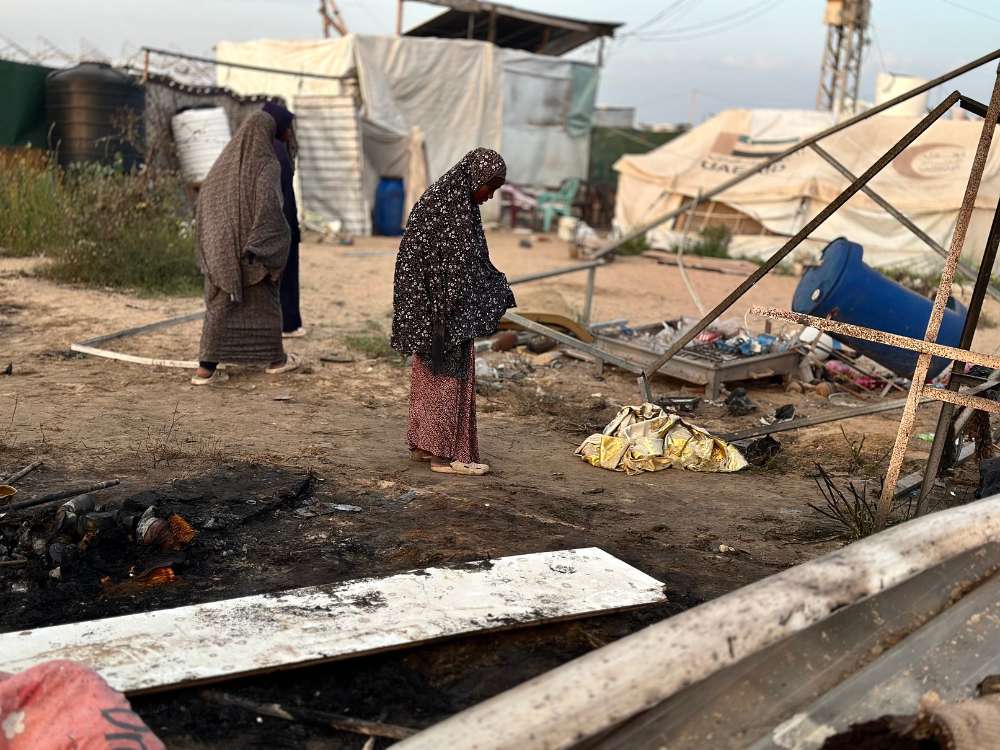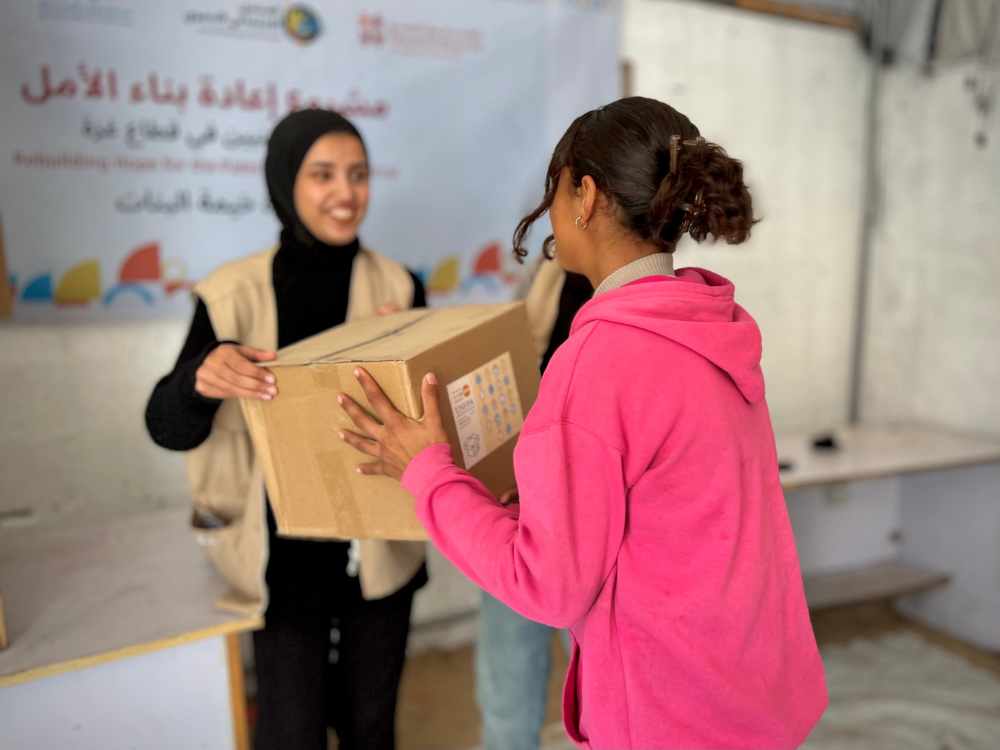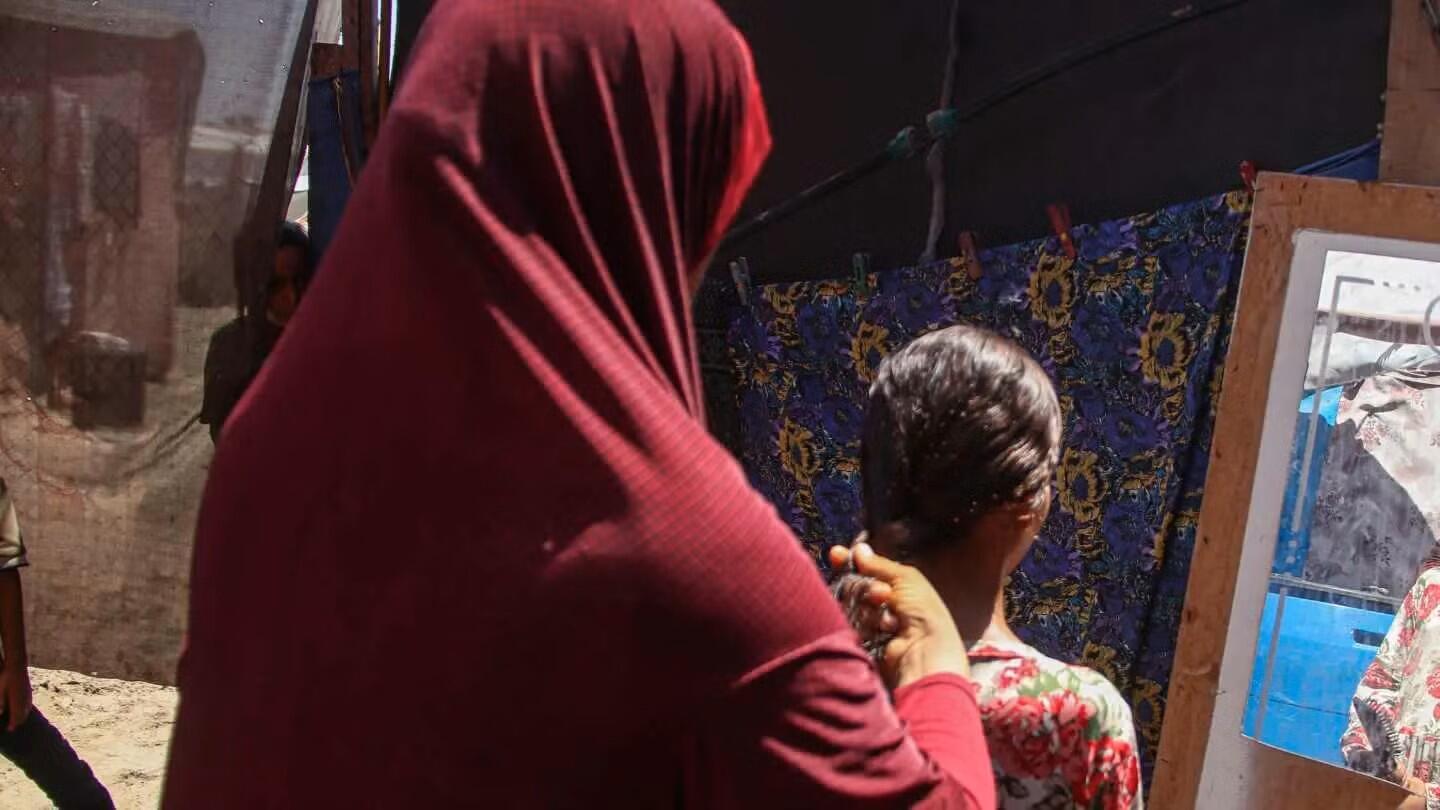The past 19 months have been deadly for women and girls in Gaza. Since October 2023, on average, one woman and one girl has been killed every hour in attacks by Israeli forces. People have been displaced multiple times, trapped in increasingly shrinking spaces, with no safety, and where the humanitarian crisis is becoming more desperate by the day.
Many families are sharing tents or sleeping in the open, or in the skeletal remains of buildings that could collapse at any moment. There is little food, no clean water, and extremely poor, if any sanitation. Makeshift toilets usually consist of a hole in the sand surrounded by sheets dangling from a line, and these must be shared with dozens of strangers.
For women and girls, the war has brought an additional monthly horror. Menstruation has become a nightmare for an estimated 700,000 women and girls in the absence of sanitary pads, water, toilets, or clean clothes, not to mention privacy.
An estimated 10.3 million sanitary pads are needed in Gaza every month, but three months into Israel’s total aid blockade, hygiene and menstrual supplies are almost depleted. If they can be found, sanitary pads are around five times their pre-war cost, making them unaffordable for most families. No hygiene items have been included in the trickle of aid recently let into Gaza.
“I tore one of my only shirts into pieces so my daughters could use them as pads,” said a father of four, displaced from Jabalia in northern Gaza.
Over the past 19 months, close to 90 per cent of water and sanitation facilities have been damaged or destroyed leaving nine in ten households facing severe water shortages. Families are forced to make impossible choices between drinking, cooking, or washing.

In the absence of sanitary pads and clean water, women and girls are forced to improvise, using old clothes, torn fabric, or sponges. But without water to wash, these materials cannot be reused safely, drastically increasing the risk of reproductive and urinary tract infections, and other skin and hygiene-related diseases. An estimated 170,000 women and girls are expected to suffer from these conditions, most without hope of treatment, potentially leading to long-term gynecological complications.
The nightmare isn't just physical; the psychological toll is severe. For adolescent girls, the first period, a confusing time even in peace, becomes an unbearable ordeal.
“My period started while I was in a crowded shelter. I only had one pad, so I wrapped it with toilet paper to make it last,” said a young girl from Gaza. “I couldn’t wash, and the pain was horrible. I sat in silence crying until the end of the day.”
Some women and girls are even driven to skip meals or reduce how much they drink just to avoid having to use unsafe toilets.
The constant struggle to survive has stripped women and girls of their dignity. Menstruation, a natural part of life, has become a source of helplessness and distress. There is nowhere to dispose of used sanitary pads, adding to feelings of fear and shame.
“I’ve forgotten I’m even a woman. I can’t remember the last time I took care of myself or had a nice shower. My body doesn’t feel like my own anymore," said a 37-year-old displaced woman.

How UNFPA is responding
Since October 2023, more than 300,000 women and girls have received a two-months’ supply of disposable sanitary pads. Dignity kits, menstrual hygiene supplies, and cash assistance have reached over 150,000 women, enabling them to buy essential items like pads, soap, underwear, and towels.
"Food keeps us alive, but pads, soap, and privacy let us live with dignity," said a 42-year-old displaced woman in Khan Younis. “Receiving a hygiene kit feels like being seen.”
Over 6,200 adolescent kits, containing hygiene items, educational materials, and protection tools, have also been distributed across Gaza.

As needs remain enormous, UNFPA and partners are ready to scale up and deliver assistance to those most in need based on humanitarian principles. Trucks carrying desperately needed supplies, including hygiene items, have been stalled at borders for weeks. UNFPA once again calls for an immediate ceasefire and the restoration of unhindered humanitarian access. Women and girls have suffered enough; they desperately need this nightmare to end.


